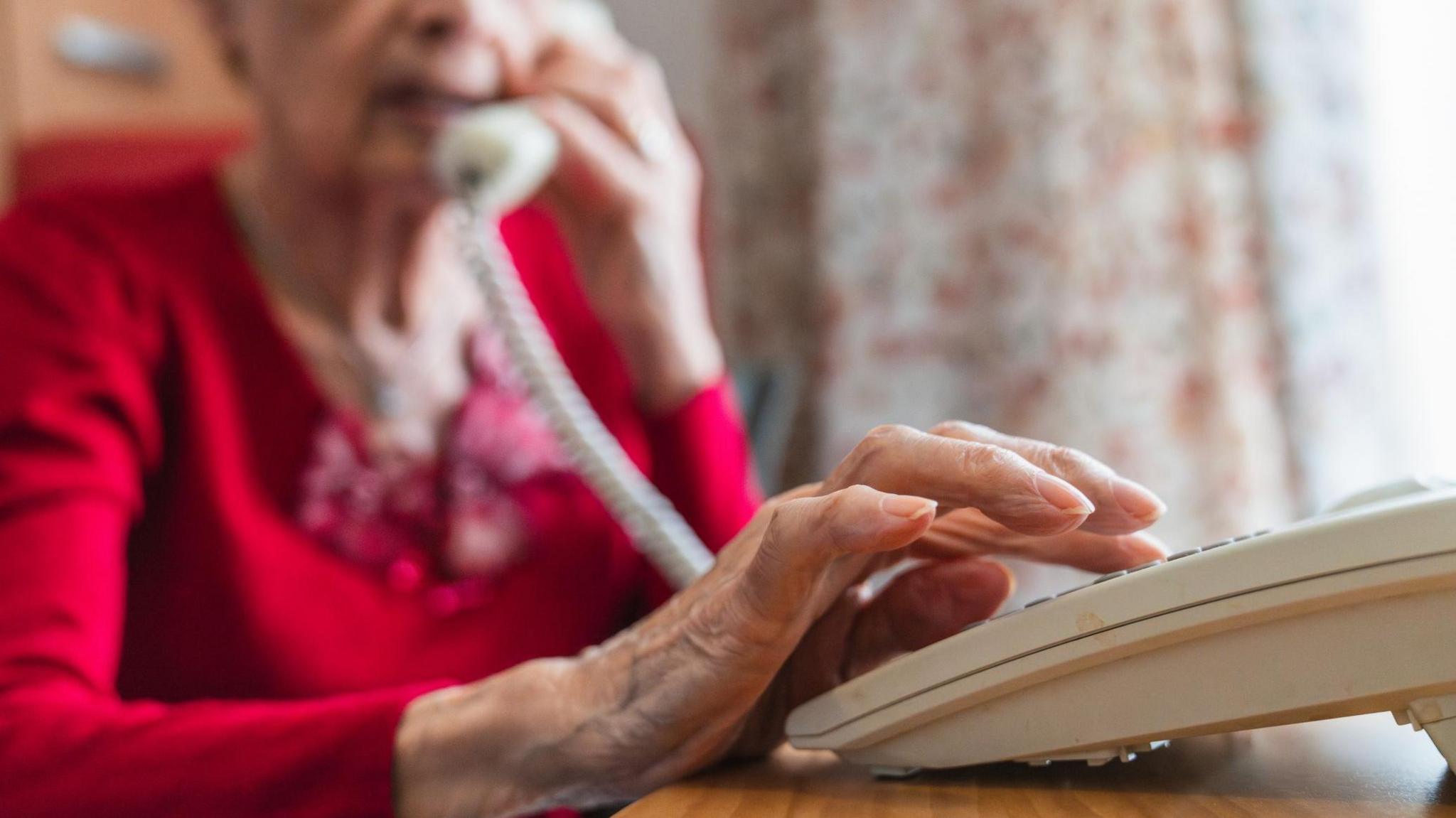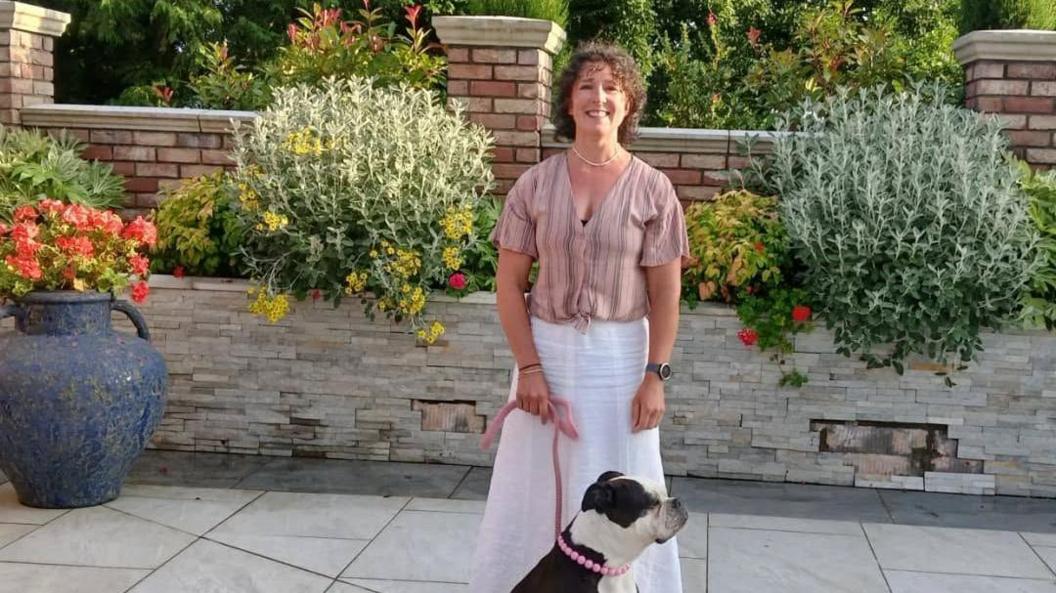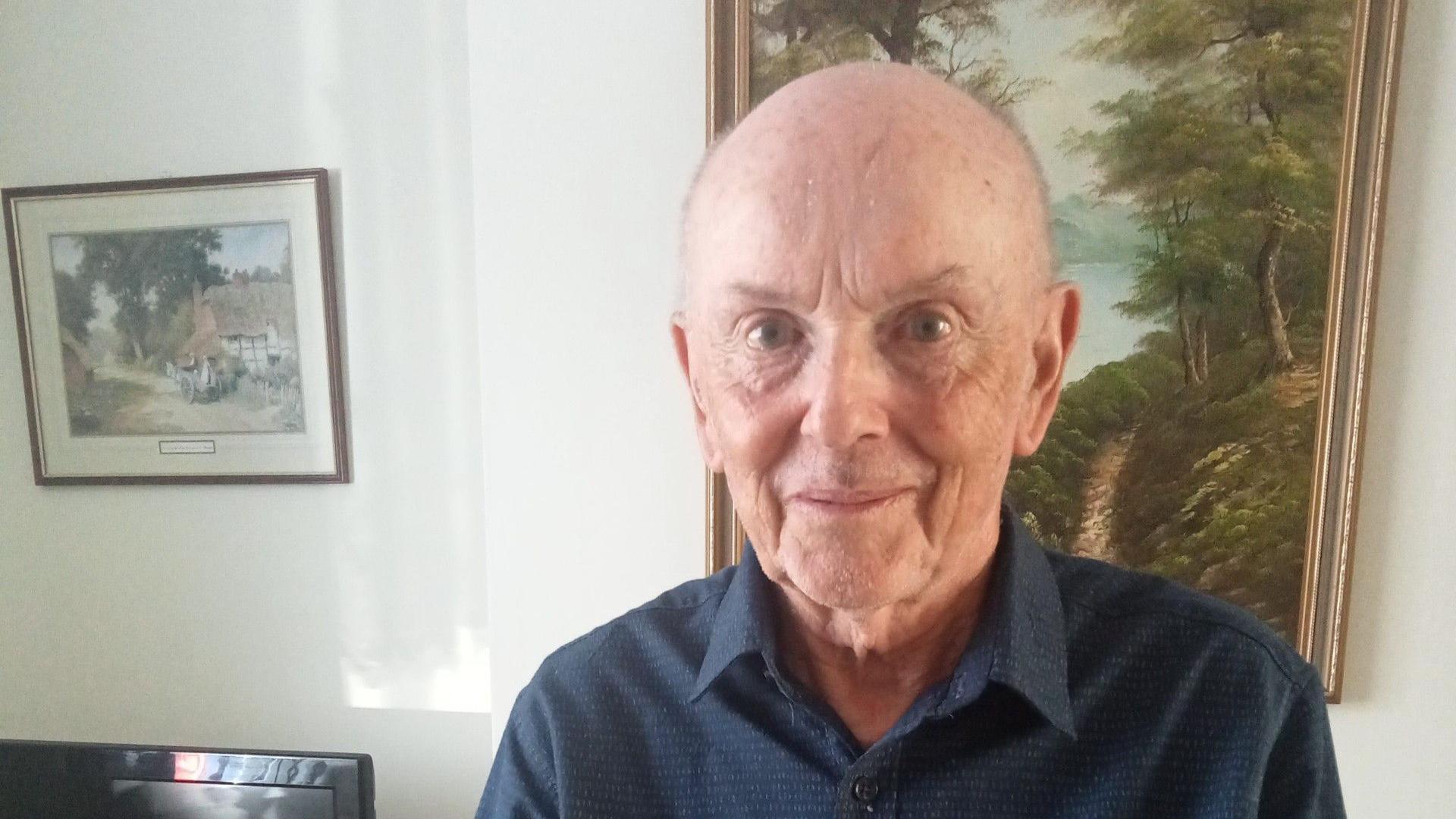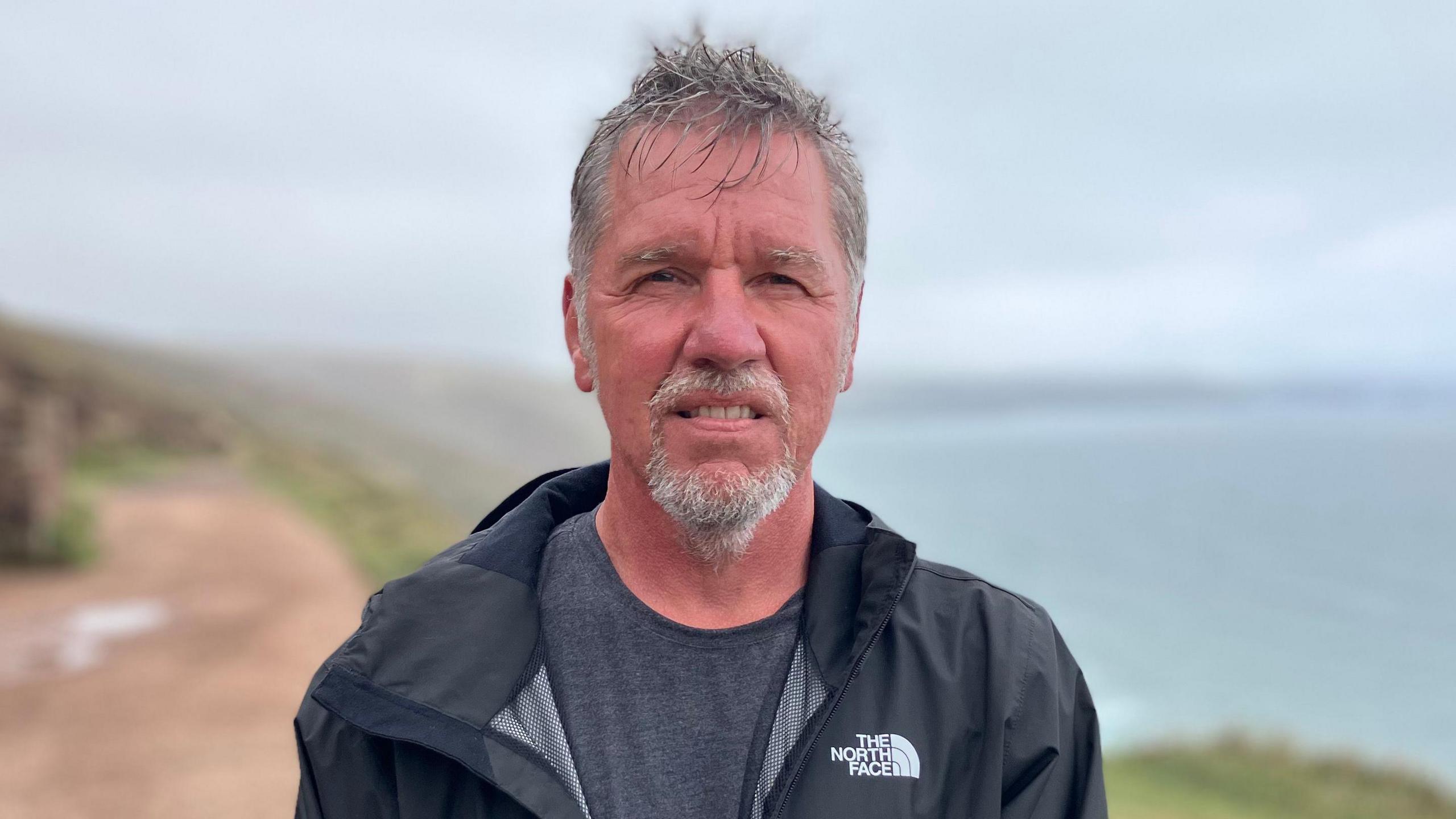Exodus of Samaritans volunteers after branch closure

Founded in 1953, Samaritans focuses on preventing suicides by connecting trained volunteers with people who are struggling
- Published
More than 85% of volunteers at a Kent branch of Samaritans that closed in April have now quit the charity.
Former volunteers at the Folkestone branch told the BBC they turned down the option to move to another base further away or work remotely for logistical reasons, but also felt that they had been treated poorly by the charity.
Samaritans refuted this claim "in the strongest possible terms".
A spokesperson said the branch closed as it was "not being run in-line with the high standards of Samaritans".

Nicola Joyce said the closure of the Folkestone branch felt "brutal"
Founded in 1953, Samaritans focuses on preventing suicides by connecting trained volunteers with people who are struggling.
In July, Samaritans announced that it would close over 100 branches across the UK and Ireland - but said the Folkestone office's closure "had nothing to do with the recent proposals to secure the future of our charity".
Asked about the large number of volunteers who had quit the charity following the closure of the Folkestone branch, a Samaritans spokesperson said: "The circumstances of one individual branch are not a predictor of outcomes elsewhere."
The services at the Folkestone branch were paused in January before it was permanently closed in April.
The charity said the closure was "related to issues regarding leadership, quality, and compliance matters".
Former volunteer Nicola Joyce said news of the closure was a shock.
"We were left just not really knowing what was going on," she said. "It felt very baffling."
The Edwardian house that the branch was based in went on the market on Tuesday for £277,500.
Ms Joyce said the building offered a real sense of community that felt very "homely".

The house that Samaritans was based in is now on the market for £277,500
The 83 volunteers based at the Samaritans centre in Folkestone were offered the opportunity to relocate to offices in Canterbury or Ashford, but only nine transferred while two chose to work remotely.
Barry Watson, 81, said he turned down the offer to work from home because he did not have the appropriate IT skills.
A former headteacher, he had been a volunteer at Samaritans for 21 years and said leaving the charity had left "a big gap" in his life and "that feeling that you're no longer helping people".
He said the closure was done in a very "cruel way".
Ms Joyce turned down the opportunity to work at another branch because she couldn't leave her dog at home for long hours, but also said that after the closure she no longer wanted to volunteer for the organisation.
"One of the things that upsets me most is how disposable we all felt," she said.
"At no point did the central charity formally acknowledge us or thank us.
"Some of us had volunteered for years, for decades. One member of our branch for over 50 years.
"We cared so deeply and gave so much. It felt brutal."
A spokesperson from Samaritans said individual volunteers were contacted personally by phone call and letter in January and again in April "to fully explain the situation".
They were also offered "emotional support" and a coffee morning.
"Samaritans absolutely appreciates and values the efforts of all our 20,000 plus volunteers," the spokesperson added.
"While we understand how disappointed Folkestone volunteers will have been in the eventual outcome, we would never treat any volunteers in the manner being suggested."

Former volunteer Barry Watson said leaving Samaritans had left a "big gap" in his life
Nicola Ellingham, who volunteered at the Folkestone branch as IT support, said volunteering was "not just about answering the call, it's about being part of that local community".
She said working in a bigger, centralised branch would not offer that and could feel anonymous.
Remote working would not work, she said, because some calls could be "extraordinarily harrowing" and it was important to be in the same room as someone else "just to be together and to talk through what's happened".
Samaritans chief executive Julie Bentley previously told the BBC: "Samaritans provides a life-saving service, day and night, 365 days a year but the changing needs of our callers and volunteers mean thinking differently about the way our services need to work.
"We are engaging with our volunteers on proposed improvements that will mean we are able to answer more calls, have more volunteers on duty and be there for more people in their darkest moments.
"Samaritans volunteers are hugely dedicated to being there for our callers and they remain at the heart of our service, but it has become increasingly clear that having over 200 branches, varying in size from 10 to 300 volunteers, is not sustainable and hinders us providing the best possible service to people who need us."
Follow BBC Kent on Facebook, external, on X, external, and on Instagram, external. Send your story ideas to southeasttoday@bbc.co.uk, external or WhatsApp us on 08081 002250.
Related topics
- Published20 January

- Published6 August

- Published30 September 2024
